Veterans Day: experts talk about life after military service
There are over 18 million veterans in the United States, a population that’s becoming more diverse and increasingly female. USC experts offer insight into issues facing service members returning to civilian life and celebrate the vast numbers of veterans succeeding in business and higher education. With more than a thousand veterans and dependents enrolled, USC offers extensive academic programs, support services and organizations for student veterans. USC is ranked in the top five best colleges for veterans by U.S. News & World Report.
Contact: Ron Mackovich, rmackovi@usc.edu or (213) 810-8583
Avoiding assumptions about veterans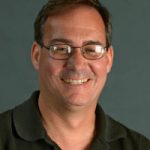
“Most veterans transition back to their civilian communities with little to no difficulties. Some veterans, however, will struggle. They will find it difficult to obtain a good paying, meaningful job. Some veterans will have significant unresolved mental or behavioral health issues.
“It is important for those who have never served in the military to respect those that have by not judging them nor assuming that they have mental health issues or are homicidal or suicidal. Indeed, rather than being a threat to their communities, veterans are a tremendous asset that should be cultivated.”
Carl Castro is an associate professor of social work and director of the Center for Innovation and Research on Veterans & Military Families. Castro served 33 years in the U.S. Army.
Contact: cacastro@usc.edu
Translating military experience into jobs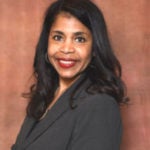
“Veterans are renowned for their strong work ethic, resilience, leadership skills and their ability to improvise, adapt and overcome. One of the challenges facing veterans is that of translating their military experience into civilian employment opportunities. I highly encourage veterans to review job descriptions and tailor resumes using their transferable skills and avoid using military jargon and acronyms. Veterans should practice their one-minute elevator pitch and network with other veterans and civilian contacts to glean a good understanding of the culture of a potential employer.
“We host an annual Veterans and Military Families Recruiting Night that engages nearly 50 employers from across the US. With the high demand from employers seeking former service members, veterans have a competitive advantage. Leverage it!”
Lori Shreve Blake is senior director of alumni and student career services at USC and an expert in hiring trends.
Contact: shrevebl@usc.edu or (310) 463-5251
Supporting military spouses and families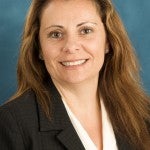
“On Veterans Day, we should take a moment to consider the stresses that military spouses face on a daily basis. A recent survey of 8,500 Army spouses revealed that the most common challenges faced by them are work-life ‘imbalance,’ military practices and culture along with their own well-being (i.e., feeling stressed, overwhelmed or tired). In my estimation, the military does not do enough to meet the needs of military spouses and families. There is little in terms of preventative programs or services and outreach. In general, society does not typically consider or remember the significant role that spouses play in the well-being of our soldiers and the daily sacrifices they make for their soldiers, families and ultimately for the security of our nation.”
Eugenia L. Weiss is a clinical professor, at the USC Suzanne Dworak-Peck School of Social Work. She is the author and co-author of multiple peer-reviewed journal publications and books focused on military social work and student veterans.
Contact: eugenia.weiss@usc.edu
Encore careers for veterans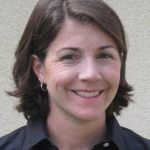
“There is a Hollywood-driven stereotype that aging veterans all served in WWII or Vietnam, that they all have PTSD and that they have a hard time responding to daily life as they grow old. While research shows this experience is valid for some, there are veterans whose daily narratives focus on a desire to find meaning and serve their local communities in tangible ways, whether as a volunteer sheriff, a church volunteer, an elected official or a coach.
“As cohorts of younger Baby Boomers and older Gen X Iraq and Afghanistan War veterans age into their 50s, they are looking at encore careers, civic engagement and how their military and socio-historic experience fits into their life course to date and the next phase of their lives.”
Caroline Cicero is an instructional associate professor at the USC Leonard Davis School of Gerontology and director of the USC Age Friendly University Initiative.
Contact: cicero@usc.edu
Ending veteran homelessness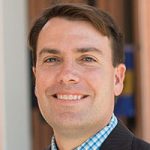
“Reducing and in some places ending veterans homelessness over the past decade has been remarkable to witness. Since 2010, the number of veterans experiencing homelessness in the United States has been cut by over 50%. It shows what can be done when an evidence-based solution, namely ‘housing first,’ is brought to scale.
“This past year California had its largest decrease in the number of veterans experiencing homelessness yet remains home to over 10,000 homeless veterans. Clearly the work of ending veterans’ homelessness is not complete.”
Benjamin Henwood is an assistant professor at the USC Suzanne Dworak-Peck School of Social Work. He is an expert in mental health and housing service and co-author of the book Housing First, which examines a paradigm-shifting approach that does not demand sobriety or treatment for permanent housing.
Contact: bhenwood@usc.edu



